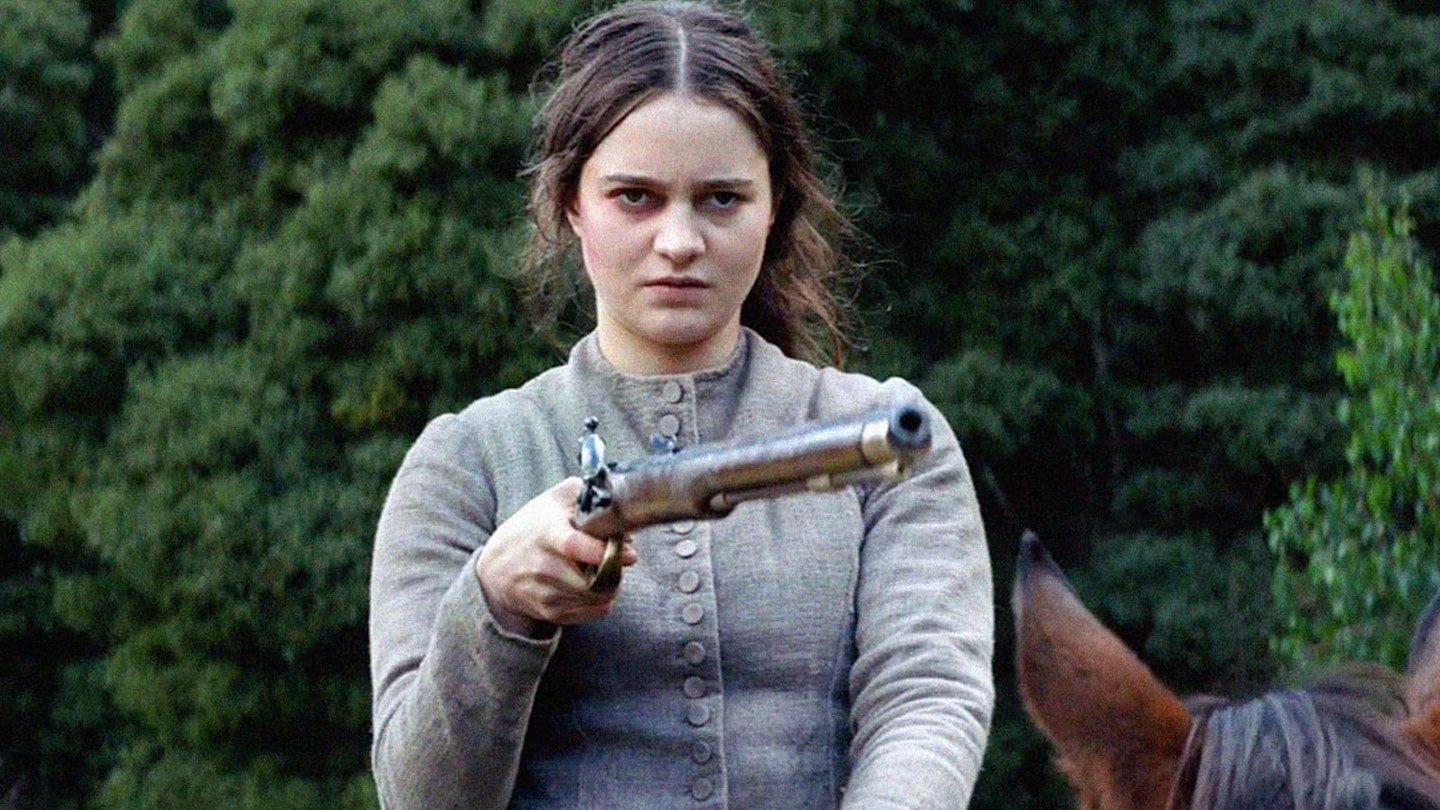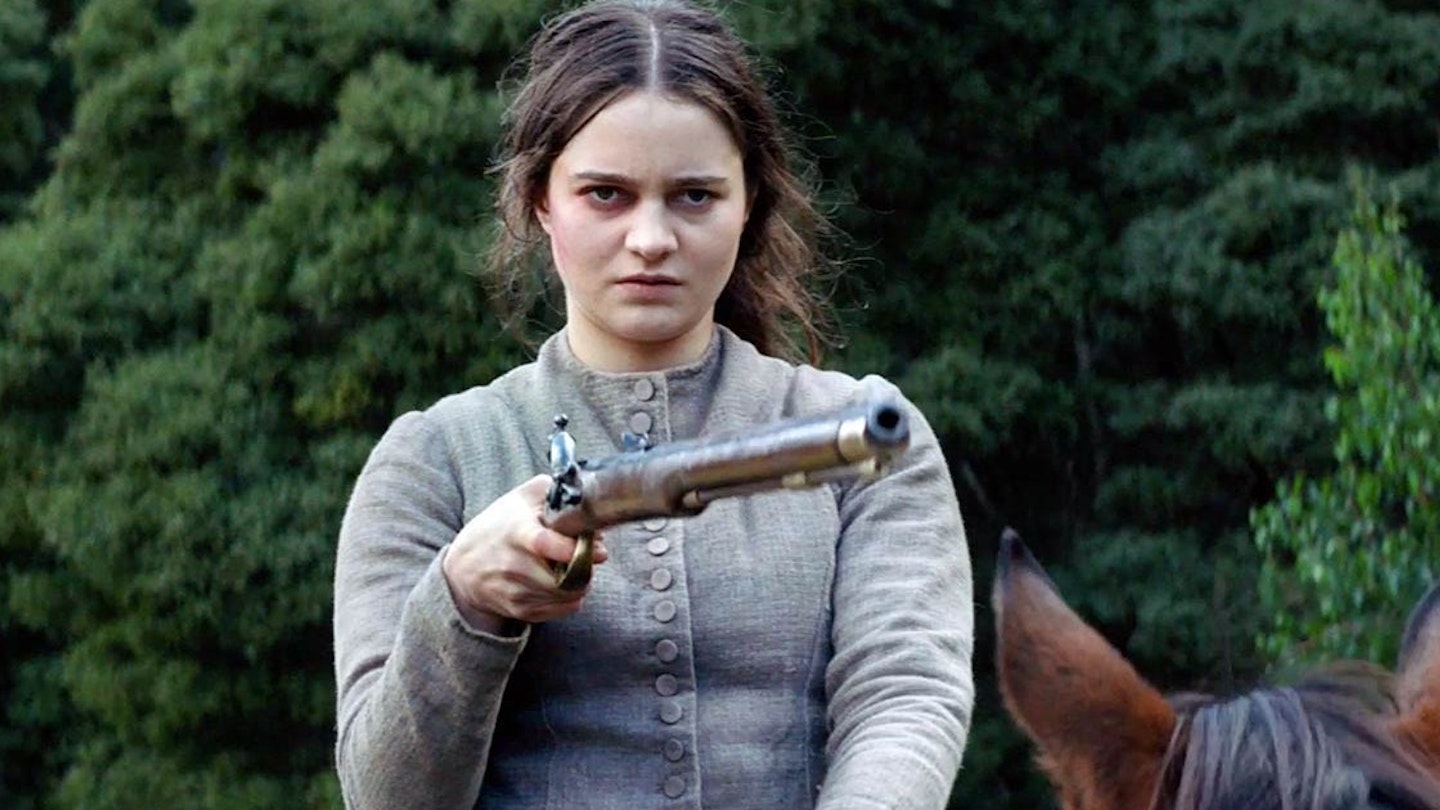With The Babadook, Australian filmmaker Jennifer Kent announced herself as a significant directing talent. She took one of the most ancient tropes in horror — the boogey-man — and morphed it into a metaphor for grief and death. The result was a horror film with unusual tenderness and obvious craft; Kent’s top-hatted ghoul was easily welcomed into the horror canon (and, inadvertently, the LGBT community, who adopted the demon as one of their own). But with The Nightingale, she is trying something markedly different. There are horrors here, but it is more expansive and ambitious than her claustrophobic first film. It is also, arguably, a marked step-up and maturation as an artist.
On paper, The Nightingale fits securely inside the ‘rape-revenge’ subgenre: a female protagonist is brutally assaulted, then seeks bloody retribution. But, like last year’s Revenge, this has loftier claims than the old ’70s template. The setting here is deliberate and piercingly important: colonial Tasmania was witness to some of Britain’s most notorious and shameful crimes, and the film attempts to grapple with the impact of such brazen, callous disregard for humanity, all while focusing on a singular story.

Kent doesn’t flinch. The film’s opening act is about as savage and distressing as mainstream cinema gets. There are multiple graphic rapes and murders within the first 20 minutes, shot with an intensity and a resolve calculated for maximum viewing discomfort. Some will feel it even crosses a line, but it solidifies and deepens the journey that the characters go on — and, crucially, feels appropriate for this historical context. Kent doesn’t want us to look away; to do so almost seems like ignoring the crimes of the past.
Taking the brunt of the nightmare is Clare (Franciosi), an unwilling immigrant to this corner of the British Empire. Franciosi — until now, best known as Jon Snow’s mum in a small Game Of Thrones role — gives a tough, deeply vulnerable performance that can’t have been much fun to film. But she’s superb, and immediately compelling in a complex role. Clare is determined, and stubborn to a fault, in her mission to exact some grisly justice for the crimes committed against her; but she is also decidedly imperfect. Like most white people of that time and place, she is thoughtlessly racist, and her evolving relationship with Billy (Ganambarr), the Aboriginal tracker who guides her through the Tasmanian bush, forms a fascinating cornerstone for the film.
You can’t deny the profound power of this kind of filmmaking.
Ganambarr, for his part, is extraordinary, in a performance that manages to be both darkly funny and flooringly heartbreaking. The scene in which Billy — after being offered the rare dignity of being allowed to sit at a table to eat a meal — breaks down in tears at what his country has become, is as powerful as they come. Unbelievably, it’s Ganambarr’s first acting credit. He looks like he’s been doing it for years.
Kent finds humanity and an approximation of optimism in Clare and Billy, but the worst of humanity is on show everywhere else. Worst of all is Lt Hawkins (Claflin). If you thought the Babadook was evil, you truly ain’t seen nothing yet. In another film, Sam Claflin’s Lt Hawkins might be a villain of almost absurd proportions. But here, in this context, the cruelty seems to chime with the historical record.
Hawkins shows no scruples and no remorse for the shocking number of crimes he racks up through The Nightingale, driven by old-school English entitlement, the arrogance of colonial power, and a lust for climbing the ranks. With such relentless cruelty, it’s almost a one-note character. But Kent’s script and Claflin’s performance sneak in little moments of insecurity that hint at his true motivations; a goading line from Clare about his parents’ love, or lack thereof, is particularly telling.
Hawkins’ inhumanity, the film sagely observes, is merely a symptom of a system designed for it. Life is miserable here. The British soldiers are drunk and dangerous; the remnants of their sadism are littered everywhere. The film is set during the ‘Black War’, a bloody guerrilla conflict which was effectively a genocide, and we see the bodies of lynched Aboriginals hanging from treetops.
Kent’s camera makes no attempt to romanticise the Tasmanian landscape, which is imposing, misty and mysterious. The twin journeys of Clare and Hawkins through the bush play almost like a dark Western, where leaving the safety of the open road is fraught with danger, and strangers eye each other with suspicion. The tension is ratcheted to unbearable levels. If it’s never exactly an enjoyable film, it is undeniably a gripping one.
There’s some debate to be had about whether the depictions of that violence is strictly necessary, and whether Kent’s equation of race and gender is sensitively handled enough. But you can’t deny the profound power of this kind of filmmaking. Surpassing the achievements of The Babadook, Kent is again teasing the boundaries of genre, but there’s a tenacious, palpable anger here, at injustices past and present. What a filmmaker she is proving to be.


